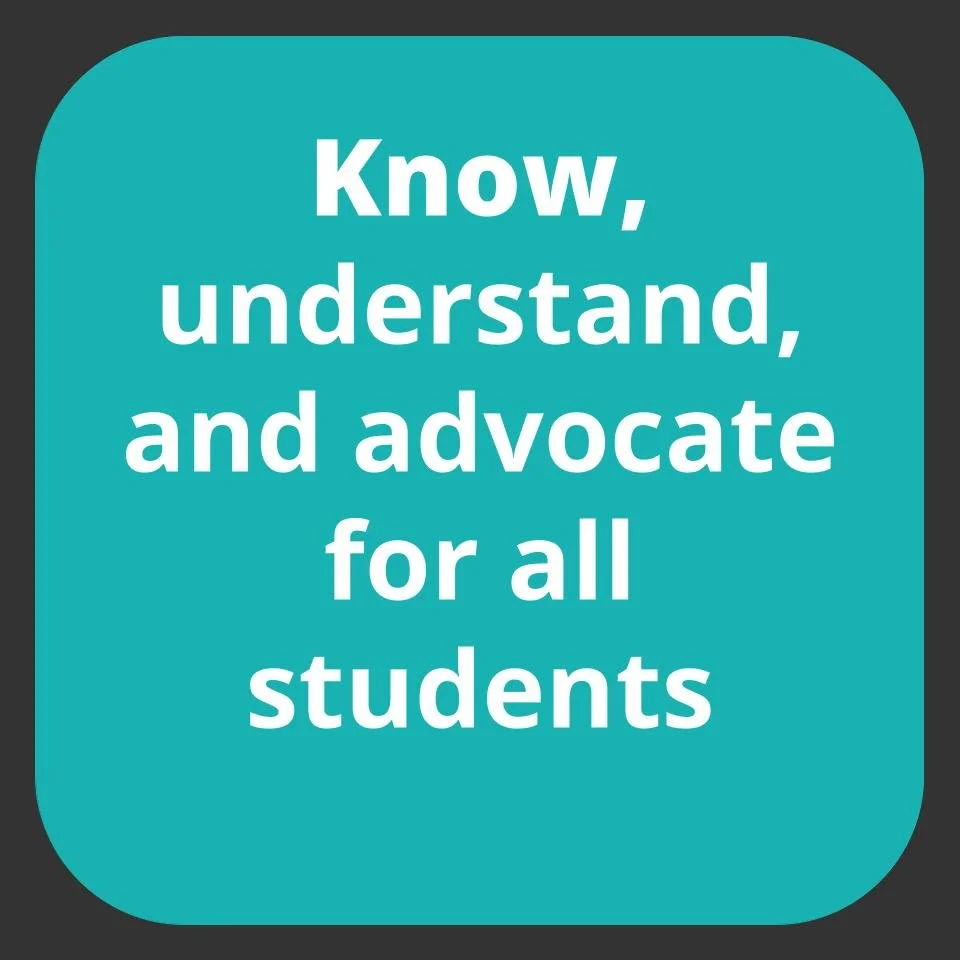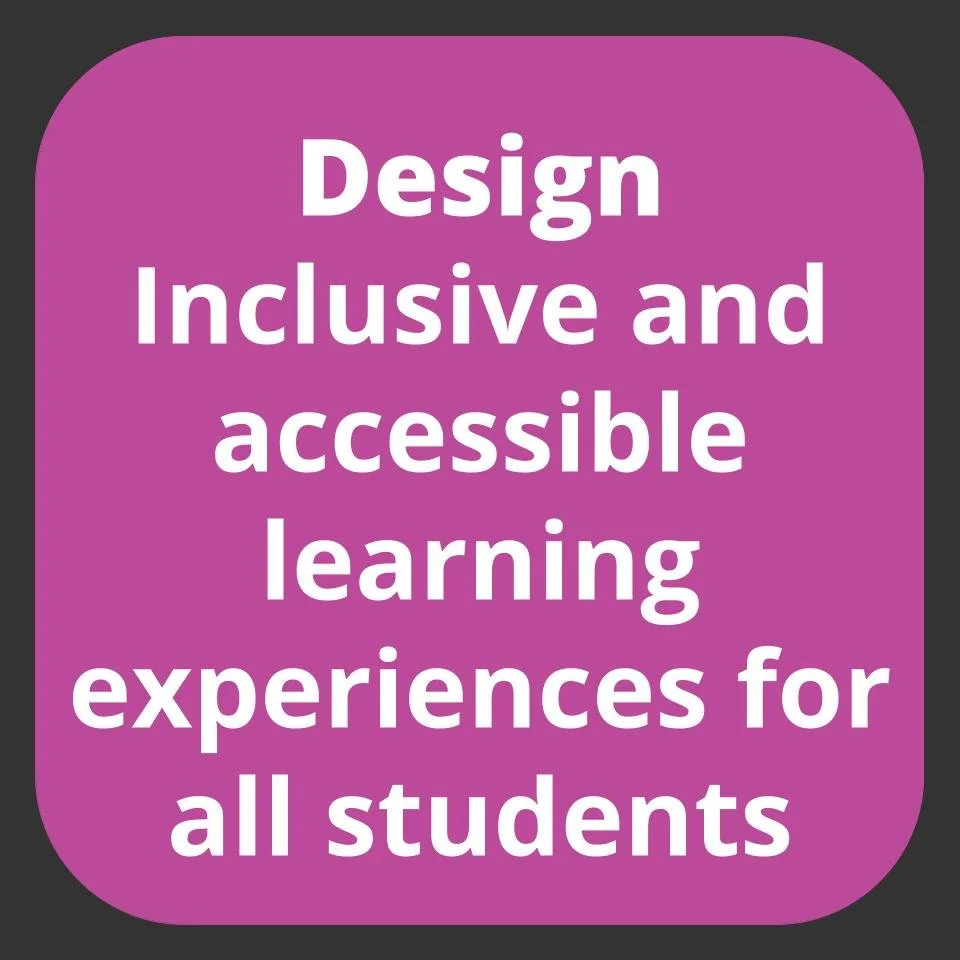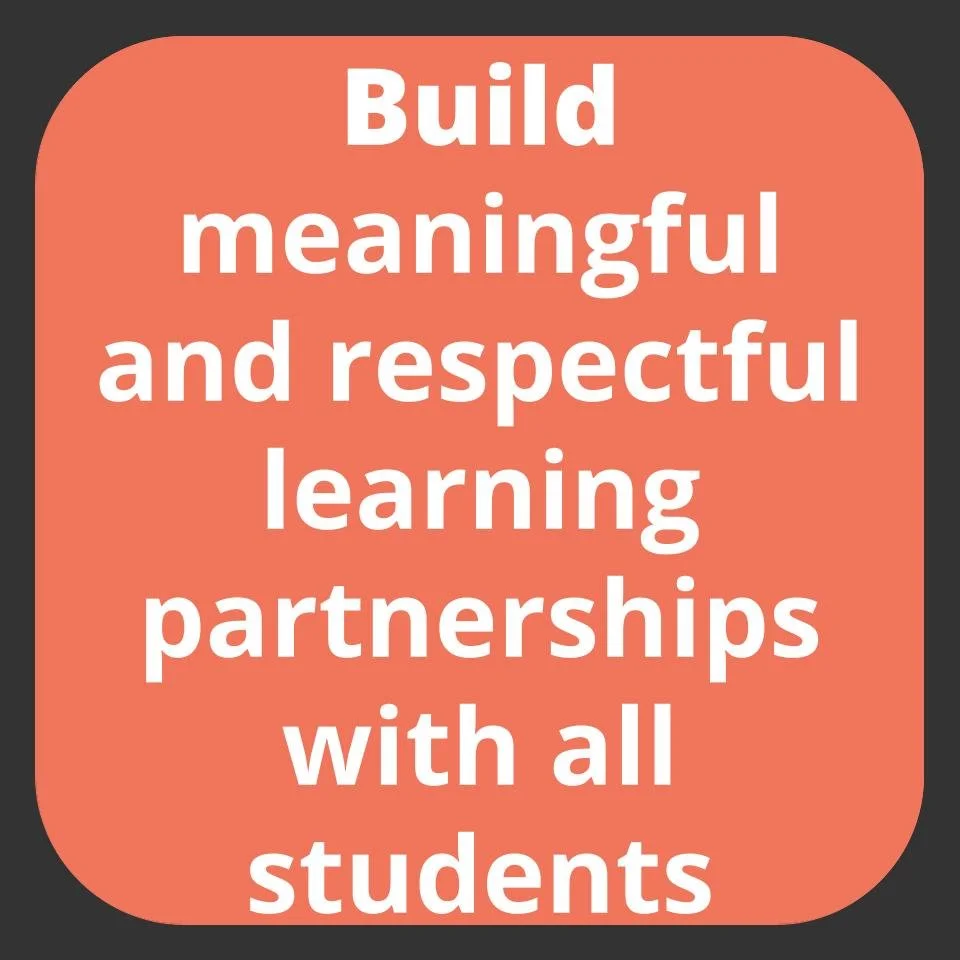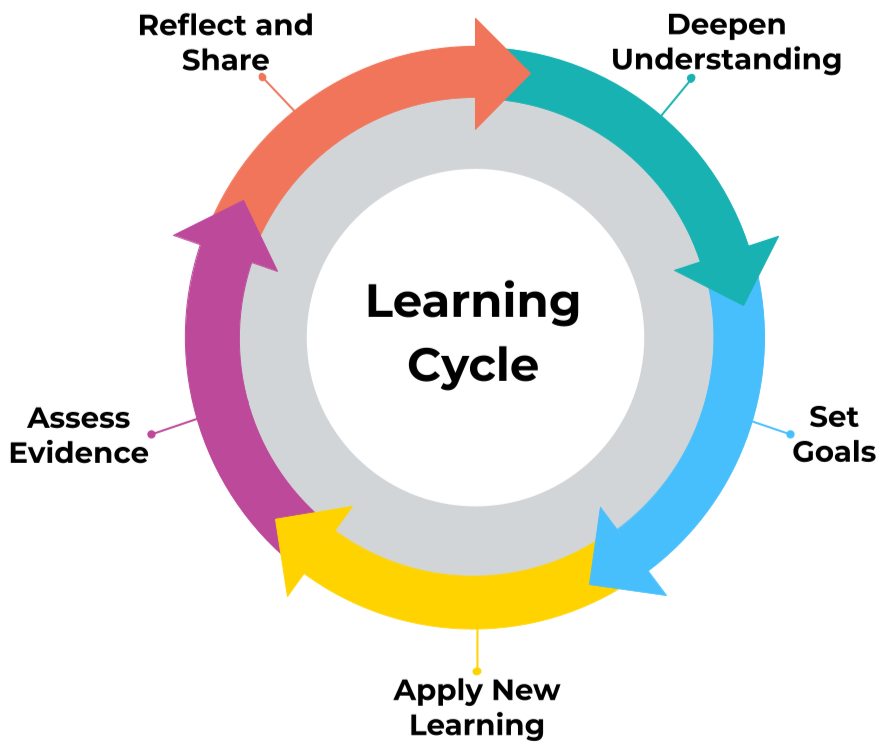Frameworks.
Every student deserves learning experiences that are accessible, engaging, and motivating—within supportive environments that nurture growth and development. Recognizing that each student brings unique strengths, interests, needs, and challenges, our professional learning draws on proven frameworks:
Understanding by Design
Understanding by Design redefines curriculum planning through a 'backward design' process that starts with clearly identified learning outcomes and essential questions. This structured approach results in purposeful, coherent instruction that emphasizes conceptual understanding over rote memorization. UbD ensures that teaching is aligned with desired results, helping students see the "big picture" and fostering deeper comprehension. Teachers using UbD employ ongoing assessment, facilitate active inquiry, and adapt instruction to support all students in meeting high expectations. The focus on understanding leads to more meaningful learning experiences and better prepares learners for future academic and real-world challenges.
Universal Design for Learning
UDL delivers a transformative impact by fostering inclusive classrooms that proactively address the diverse needs of all learners. Through its principles—multiple means of engagement, representation, and expression—UDL elevates academic achievement across subject areas, particularly benefiting students with disabilities, English language learners, and those with varying learning styles. UDL classrooms promote higher literacy rates, improved content mastery, and greater engagement by eliminating barriers and providing flexible pathways to learning. For educators, UDL offers tools to tailor instruction and assessment, resulting in increased teacher efficacy and learner success across all grade levels and demographic
Learner-Centered Education
Learner-centered education transforms the classroom dynamic by positioning students as active participants in their learning journey. This approach cultivates increased engagement and intrinsic motivation, as students have greater ownership, voice, and choice in what and how they learn. The model supports the development of durable skills like problem-solving, collaboration, and critical thinking that are highly valued in both higher education and the workforce. Learner-centered education also encourages personalized learning experiences, allowing diverse learners to progress at their own pace and in ways that reflect their individual strengths and needs. This personalization further enhances academic success, boosts self-confidence, and prepares students for lifelong learning and adaptability.
Project-Based Learning
Project-based learning (PBL) enhances students' understanding and retention of content by actively engaging them in meaningful, real-world projects that require deeper investigation, collaboration, and problem-solving. This instructional approach moves beyond passive memorization to immersive experiences where students must apply, synthesize, and communicate their knowledge, resulting in a stronger grasp of core concepts and longer-lasting retention of what they learn
Active Engagement
Real World Application
Deeper Learning
Collaboration and Reflection
Improved academic Achievement
Outcomes.
Professional learning offerings are intentionally designed to support growth in :
O Self-awareness & Reflective Practices
O Professional Knowledge & Insights
O Instructional Practices & Application
Workshops and coaching sessions are intentionally designed to align with the educator guidelines that we believe support all learners in accessing and engaging in meaningful learning
Educator Guidelines
Strong sense of self-efficacy; belief in ability to teach all students successfully.
Promote asset-based approach: Operate with the belief that all students can learn and meet their highest potential
Embrace failure as part of the learning process; engage in, and support, reflective practices
Embrace Neurodiversity and Learning Differences: Celebrate uniqueness and variability, that there is no one right way.
Engage in holistic data collection (academic and personal) and analysis (to inform learning design )
Know and understand each student’s strengths and needs, including their sense of belonging
Provide multiple ways for learners to access their learning content
Provide multiple ways for learners to demonstrate their learning - through formative and summative assessment
Facilitate multiple pacing pathways
Ensure learning process is visible to all learners
Elevate student choice and voice in how they engage with their learning
Foster community transparency through regular feedback from learners
Learning Cycle.
We welcome your participation in any of our professional learning opportunities—one session can make a meaningful impact, and engaging in multiple sessions can deepen and extend your learning even further. Research shows that ongoing, active engagement in a professional learning cycle fosters greater understanding and can positively influence student achievement and engagement.
Our Learning Cycle is designed to provide continuous, flexible support—both in-person and virtually—through opportunities to:
O Deepen understanding of core topics,
O Set focused, actionable goals,
O Apply new strategies in meaningful ways,
O Assess evidence of growth and understanding,
O Reflect on and share insights with colleagues.
Join us for as many sessions as your schedule and resources allow. Whether you participate in one session or several, your commitment to professional growth is valued and impactful. Participation in the full Learning Cycle is encouraged but never required—all workshops are designed to provide value as stand-alone experiences as well









